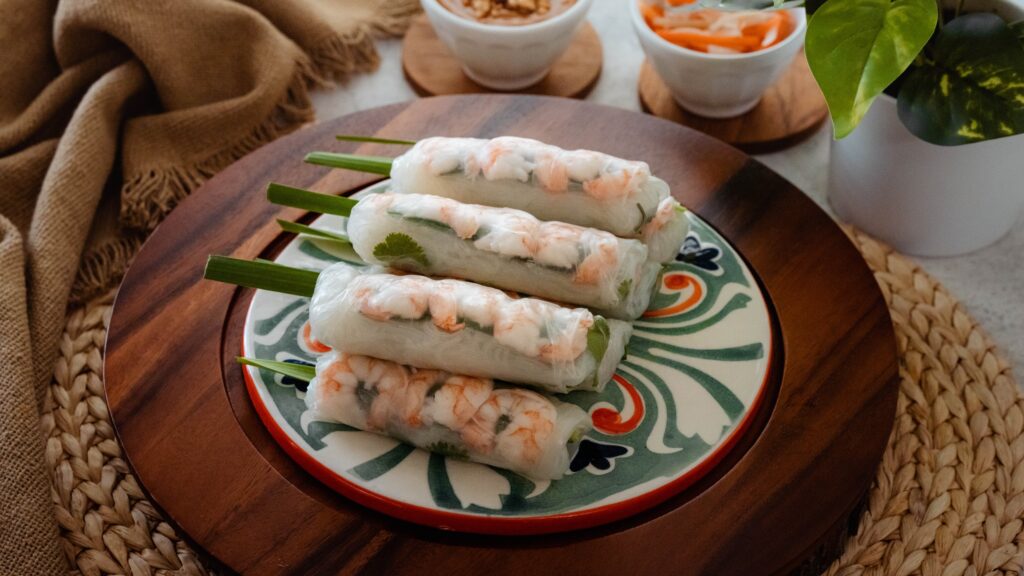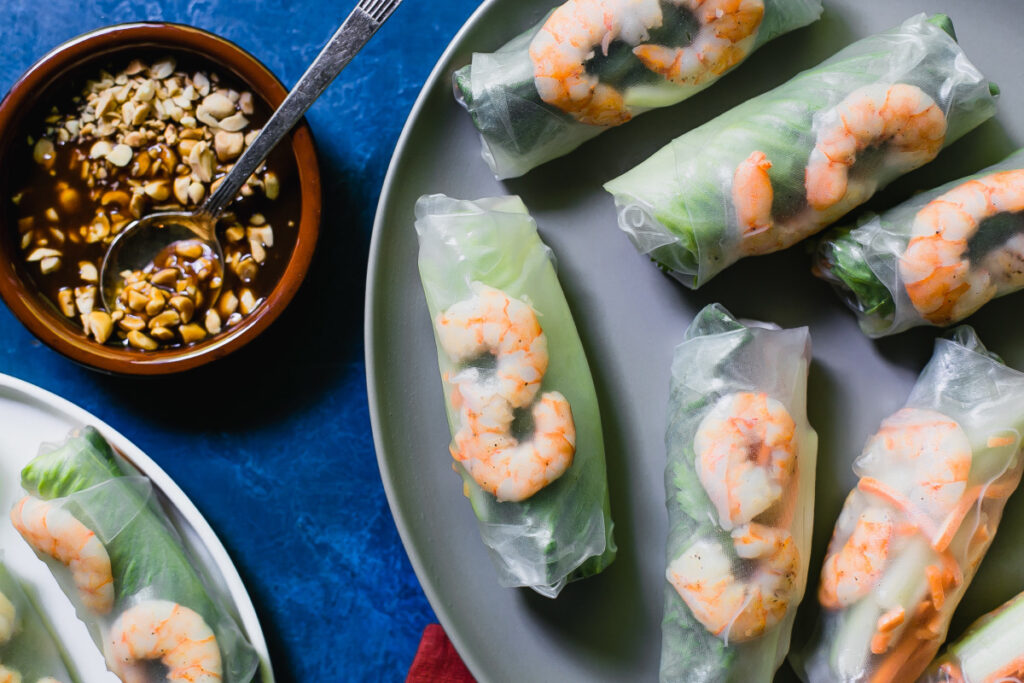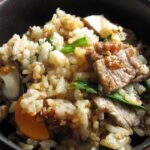Vietnamese Goi Cuon, or fresh spring rolls, are a light, refreshing, and incredibly flavorful dish that’s perfect for a healthy lunch, a light dinner, or a delightful appetizer. Unlike their fried counterparts, these rolls are packed with fresh herbs, vermicelli noodles, protein, and vegetables, all wrapped in delicate rice paper. This recipe will guide you through each step of creating authentic Vietnamese Goi Cuon in your own kitchen, making it easy even for beginners to enjoy this classic Vietnamese delight. The beauty of Goi Cuon lies in its versatility – you can easily customize the fillings to your liking, making it a truly personalized culinary experience. This guide aims to provide a detailed and accessible approach to crafting the perfect Vietnamese Goi Cuon every time.
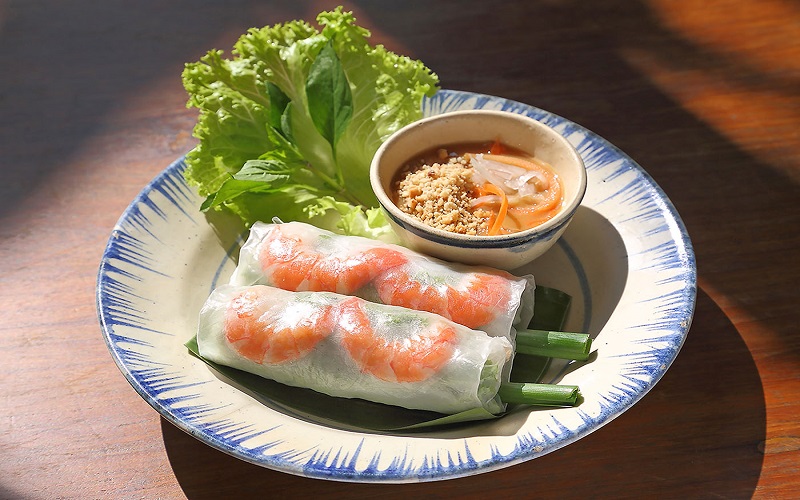

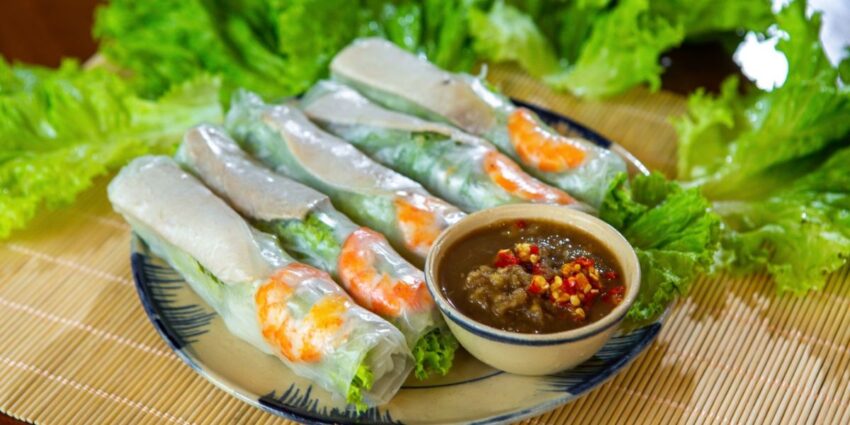
Recipe Overview
Before we dive into the specifics, let’s take a look at a quick overview of what’s involved in making Vietnamese Goi Cuon:
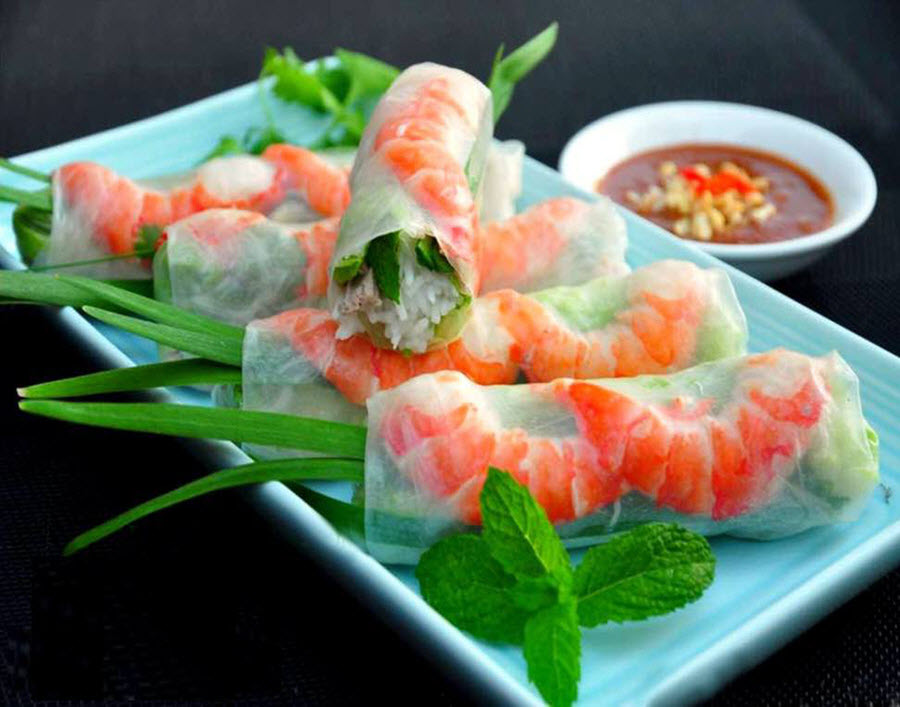
| Category | Value |
|---|---|
| Preparation Time | 30 minutes |
| Cooking Time | 15 minutes (for the protein) |
| Servings | 6-8 rolls |
| Difficulty | Easy |
Nutrition per Serving (approximate)
Please note that the nutritional information is an estimate and may vary based on the specific ingredients and quantities used.
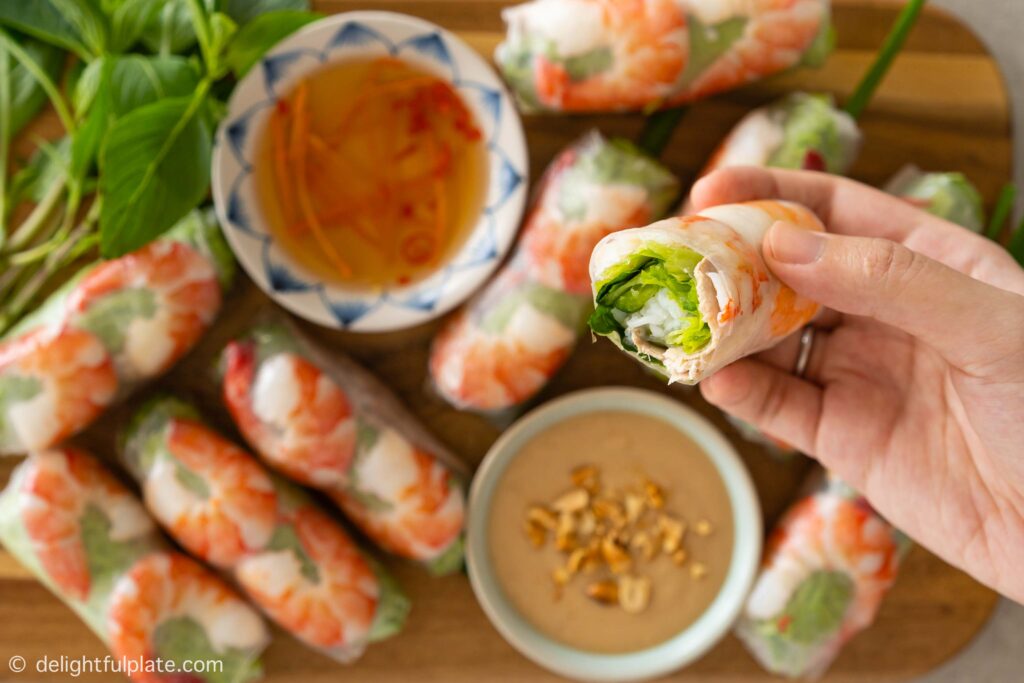
- Calories: 200-250
- Protein: 10-15g
- Carbohydrates: 25-35g
- Fat: 5-10g
- Fiber: 3-5g
Ingredients
Here’s what you’ll need to create your delicious Vietnamese Goi Cuon. The ingredients are easily adaptable to your dietary needs and preferences. Feel free to substitute or add ingredients as you like! Vietnamese Goi Cuon are incredibly customizable.
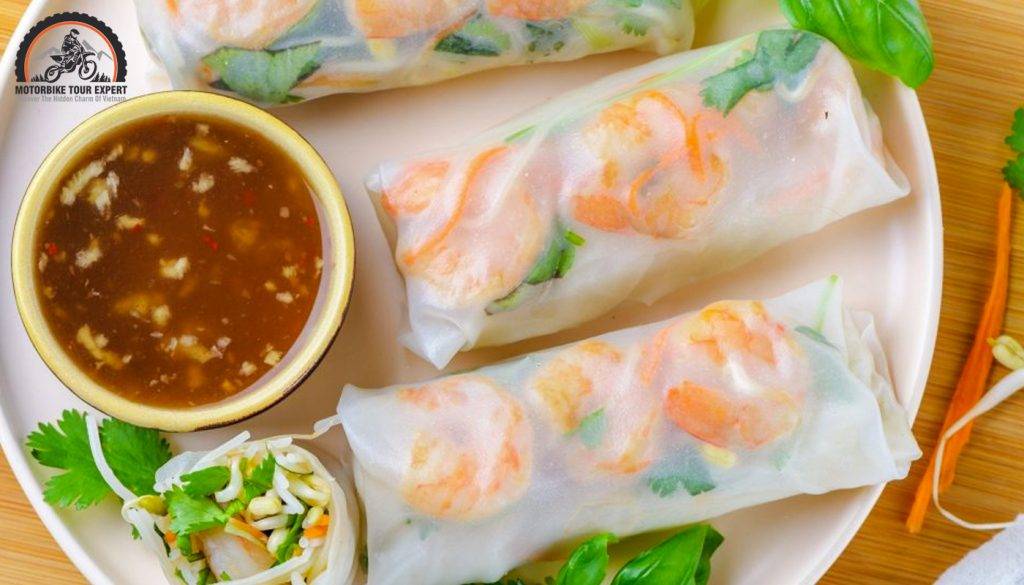
| Ingredient | Quantity | Notes |
|---|---|---|
| Rice Paper Wrappers | 8-10 sheets | Choose thin, translucent wrappers. |
| Vermicelli Rice Noodles | 4 oz | Cooked according to package directions. |
| Cooked Shrimp | 1/2 lb | Peeled, deveined, and halved lengthwise. Can substitute with grilled pork, chicken, or tofu for a vegetarian option. |
| Fresh Mint Leaves | 1/2 cup | Roughly chopped. |
| Fresh Cilantro Leaves | 1/2 cup | Roughly chopped. |
| Fresh Thai Basil Leaves | 1/4 cup | Roughly chopped. Adds a distinct anise flavor. |
| Lettuce Leaves | 8-10 leaves | Boston or butter lettuce works well. |
| Carrots | 1 medium | Julienned or shredded. |
| Cucumber | 1/2 medium | Julienned or thinly sliced. |
| Bean Sprouts | 1/2 cup | Optional, but adds a nice crunch. |
| Dipping Sauce | As needed | Peanut sauce, hoisin sauce, or nuoc cham. Recipe follows. |
Dipping Sauce: Nuoc Cham
Nuoc Cham is a fundamental Vietnamese dipping sauce that perfectly complements Goi Cuon. Here’s a simple recipe:
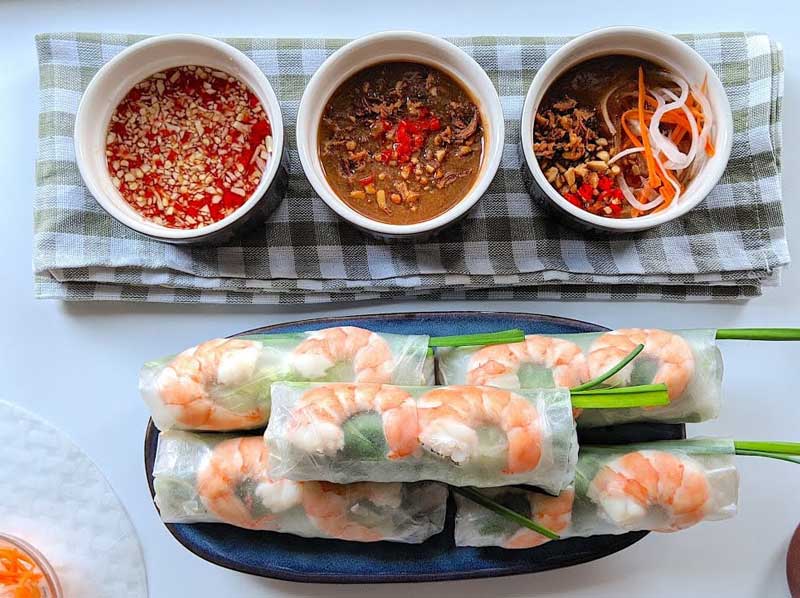
- 2 tablespoons fish sauce
- 2 tablespoons lime juice
- 2 tablespoons water
- 1 tablespoon sugar
- 1 clove garlic, minced
- 1/2 red chili, finely chopped (optional)
Combine all ingredients in a small bowl and stir until the sugar is dissolved. Adjust the ingredients to your taste. This sauce is the perfect accompaniment to the fresh spring rolls, enhancing their flavors with its tangy, sweet, and savory notes.
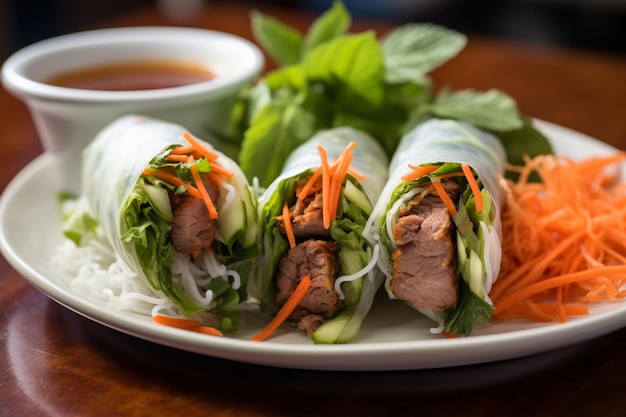
Variations for Dipping Sauce
- Peanut Sauce: Mix peanut butter, hoisin sauce, a little water, and a touch of honey for a creamy dipping sauce.
- Hoisin Sauce: Serve hoisin sauce straight, or mix with a little peanut butter and sriracha for a richer, spicier flavor.
Cooking Instructions
Now for the fun part! Follow these simple steps to create your own stunning Vietnamese Goi Cuon. Remember, practice makes perfect, so don’t be discouraged if your first few rolls aren’t picture-perfect.
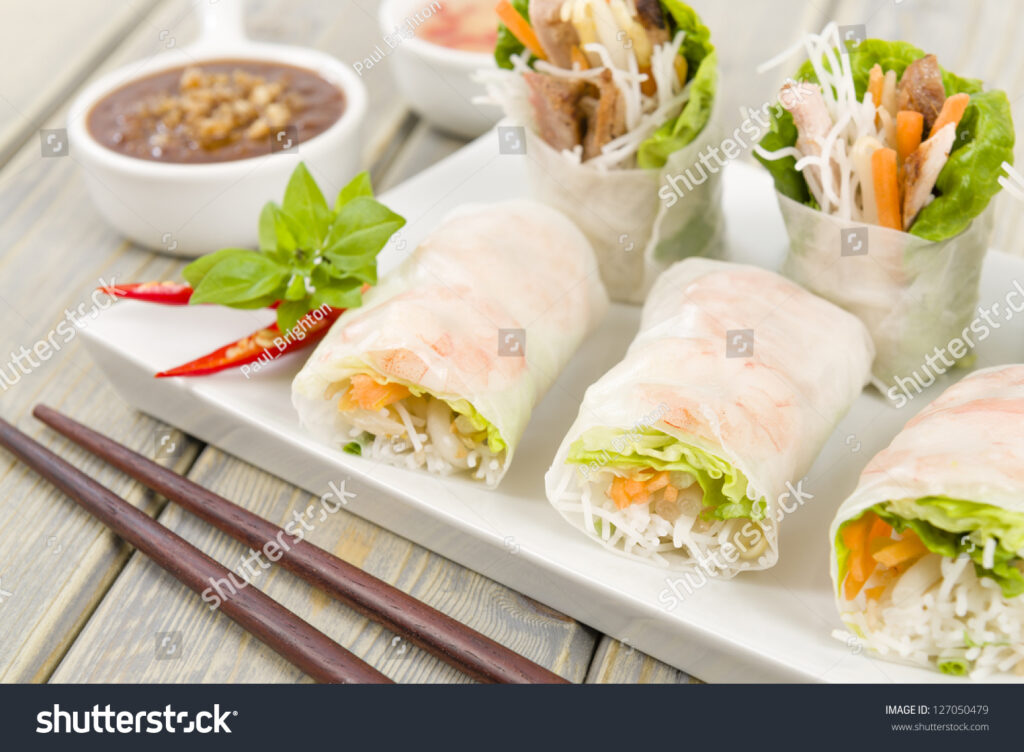
- Prepare the Ingredients: Cook the vermicelli noodles according to package directions. Drain and set aside. If using shrimp, cook them until pink and opaque. Peel, devein, and halve them lengthwise. Wash and dry all the fresh herbs and vegetables. Cut the carrots and cucumber into thin strips.
- Set Up Your Work Station: Fill a shallow dish or pie plate with warm water. This is for softening the rice paper wrappers. Have a clean, flat surface ready for rolling the spring rolls, such as a cutting board or a large plate. Arrange all your prepared ingredients within easy reach.
- Soften the Rice Paper: Take one rice paper wrapper and quickly dip it into the warm water, ensuring it’s fully submerged for a few seconds. Don’t oversoak it, as it will continue to soften as you work. The goal is to make it pliable but not too sticky.
- Lay the Wrapper Flat: Carefully remove the softened rice paper wrapper from the water and lay it flat on your prepared surface. If it sticks to itself, gently peel it apart.
- Add the Fillings: Arrange the fillings in the center of the rice paper wrapper, leaving about an inch of space on each side. Start with a layer of lettuce, followed by vermicelli noodles, herbs (mint, cilantro, Thai basil), carrots, cucumber, and bean sprouts (if using). Place the shrimp halves cut-side up for a visually appealing presentation through the translucent wrapper.
- Roll the Spring Roll: Fold the sides of the rice paper wrapper inward, covering the fillings. Then, tightly roll the spring roll away from you, like you’re rolling a burrito. Keep the roll firm and compact as you go.
- Repeat: Repeat steps 3-6 with the remaining rice paper wrappers and fillings.
- Serve: Serve the Vietnamese Goi Cuon immediately with your choice of dipping sauce (nuoc cham, peanut sauce, or hoisin sauce).
Serving Suggestions
Vietnamese Goi Cuon are best served fresh and chilled. Here are some serving suggestions to elevate your experience:
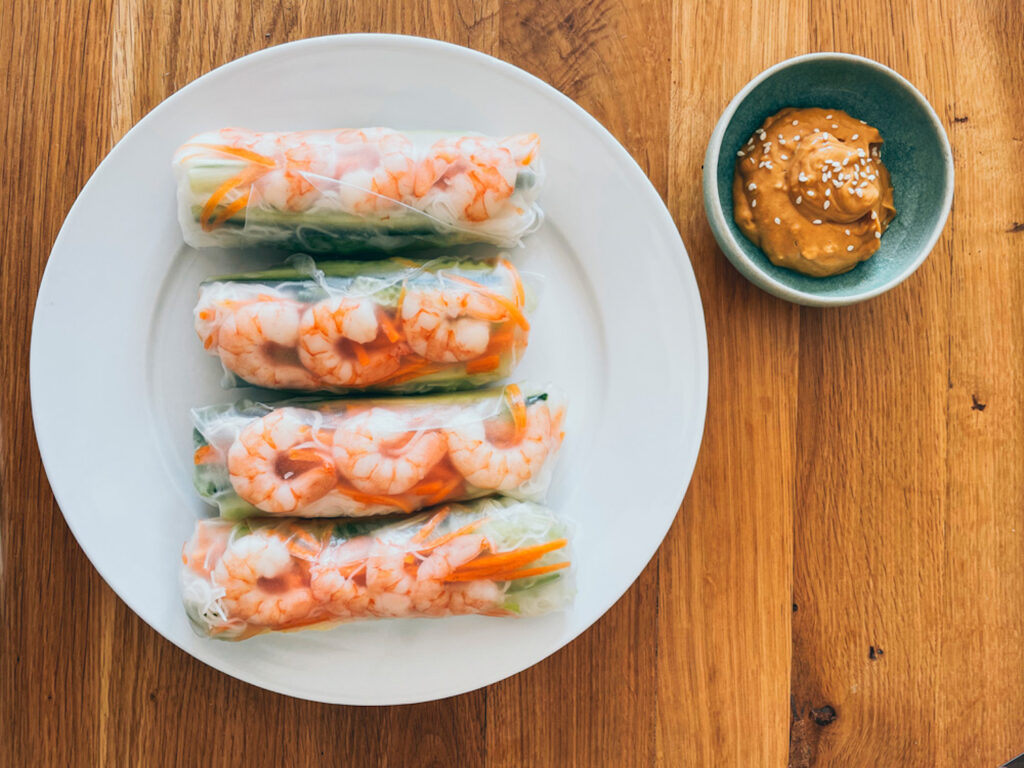
- Serve with a generous portion of your favorite dipping sauce.
- Garnish with chopped peanuts or sesame seeds for added texture and flavor.
- Pair with a light salad or a bowl of Vietnamese pho for a complete meal.
- Arrange the spring rolls artfully on a platter for a visually appealing presentation.
Tips and Notes for Perfect Vietnamese Goi Cuon
Here are some additional tips to help you achieve perfect Vietnamese Goi Cuon every time:
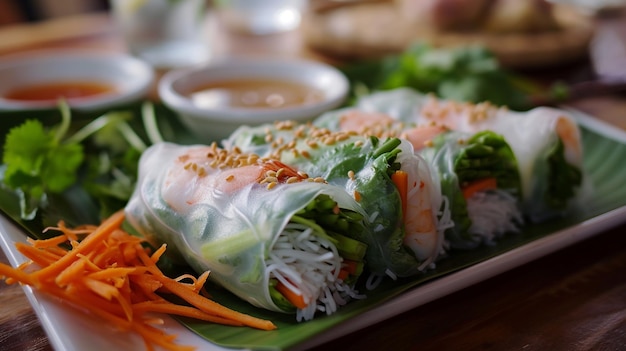
- Don’t Overfill: Avoid overfilling the rice paper wrappers, as this can make them difficult to roll and prone to tearing.
- Keep the Wrappers Moist: If the rice paper wrappers start to dry out while you’re working, lightly dampen them with a clean, damp cloth.
- Use Fresh Ingredients: Fresh, high-quality ingredients are essential for the best flavor and texture.
- Get Creative with Fillings: Feel free to experiment with different fillings, such as avocado, bell peppers, mango, or even grilled meats.
- Make Ahead: You can prepare the fillings in advance and store them in the refrigerator until ready to assemble the spring rolls. However, it’s best to assemble the rolls just before serving, as they can become soggy if stored for too long.
- Prevent Sticking: To prevent the spring rolls from sticking to each other, place them on a platter lined with parchment paper or plastic wrap.
- Adjust the Dipping Sauce: Taste the dipping sauce and adjust the ingredients to your liking. Some people prefer a sweeter sauce, while others prefer a spicier one.
Vietnamese Goi Cuon are a delightful and versatile dish that’s perfect for any occasion. With a little practice, you’ll be able to create stunning and delicious spring rolls that will impress your family and friends. Enjoy the fresh flavors and the satisfaction of making your own homemade Vietnamese Goi Cuon!
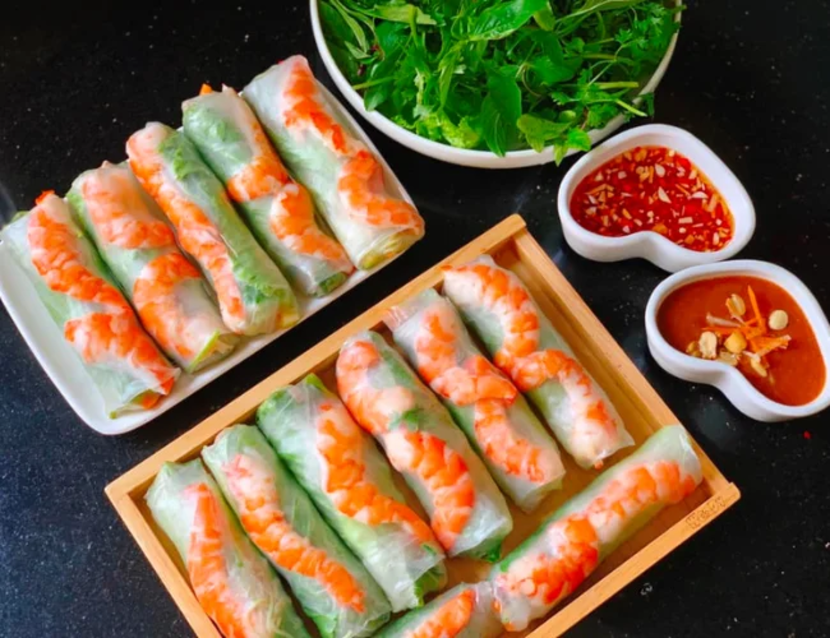
Remember, the key to great Vietnamese Goi Cuon is fresh ingredients and a bit of patience. Don’t be afraid to experiment and find what works best for you. Happy rolling!
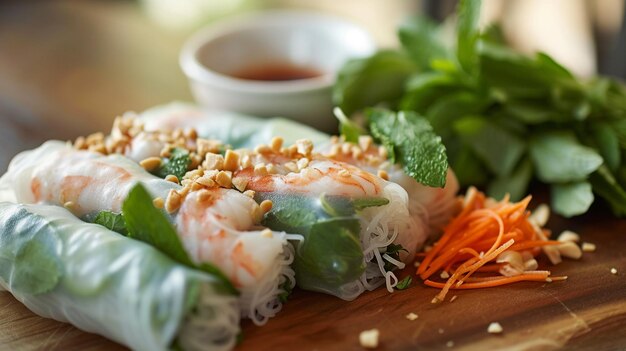
Vietnamese Goi Cuon are a great option for a light and healthy meal. The combination of fresh vegetables, herbs, and protein makes them a satisfying and nutritious choice. The fact that they are not fried also contributes to their health benefits. Make Vietnamese Goi Cuon a regular part of your meal plan for a delicious and nutritious way to enjoy Vietnamese cuisine.
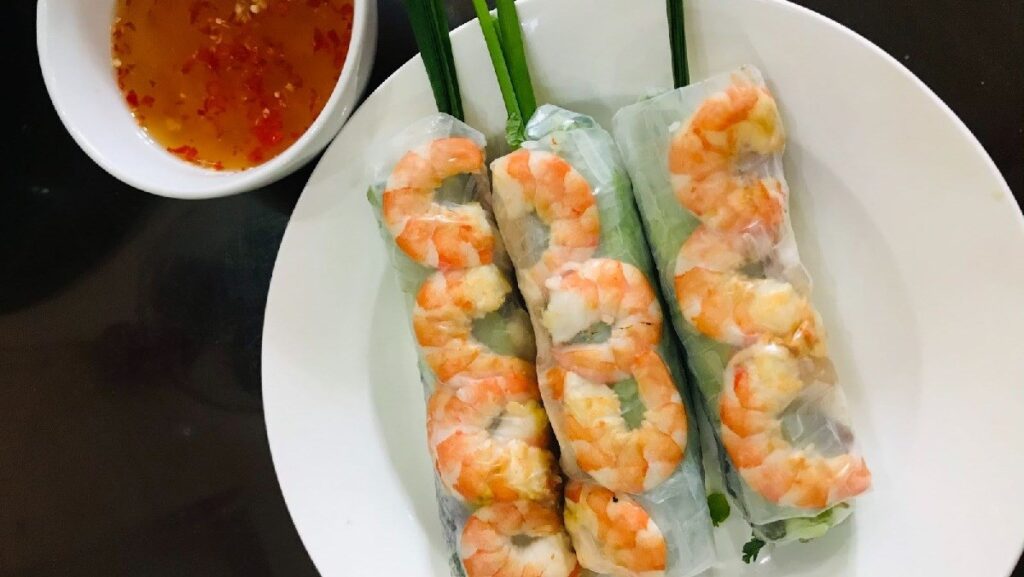
The appeal of Vietnamese Goi Cuon extends beyond just the taste and health benefits. The act of making them can also be a fun and engaging activity, especially when done with family or friends. Get everyone involved in preparing the ingredients and rolling the spring rolls. It’s a great way to spend quality time together and create lasting memories while enjoying the delicious flavors of Vietnamese Goi Cuon.
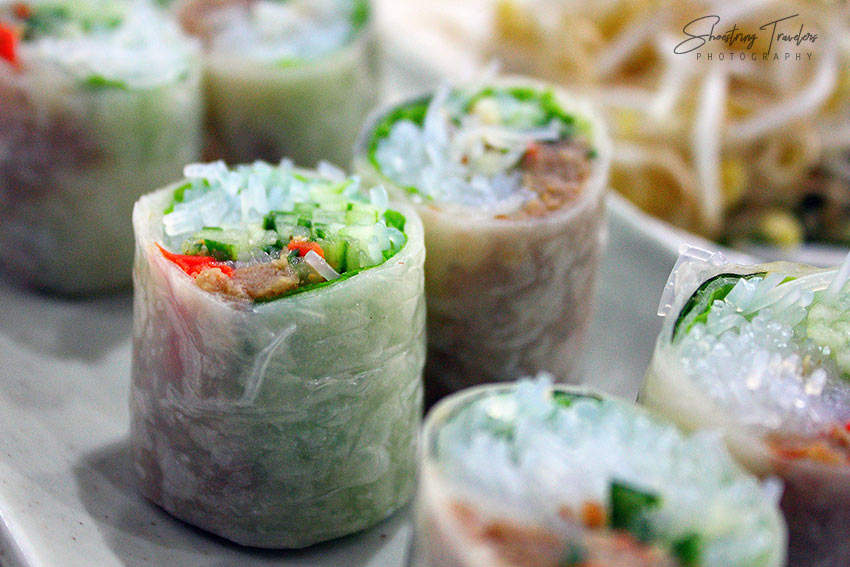
Mastering the art of making Vietnamese Goi Cuon is a rewarding culinary experience. Once you’ve got the basics down, you can start experimenting with different fillings and dipping sauces to create your own unique variations. Try adding different herbs, vegetables, or proteins to customize the flavors to your liking. The possibilities are endless, so let your creativity guide you as you explore the world of Vietnamese Goi Cuon.
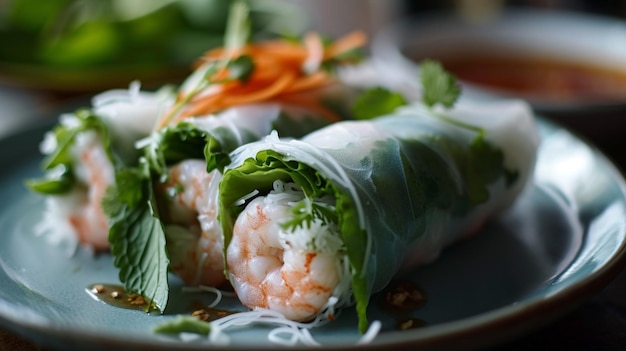
Whether you’re a seasoned cook or a beginner in the kitchen, Vietnamese Goi Cuon are a dish that everyone can enjoy. With a little patience and attention to detail, you can easily create these fresh and flavorful spring rolls in your own home. So gather your ingredients, follow the steps, and get ready to experience the deliciousness of Vietnamese Goi Cuon!
